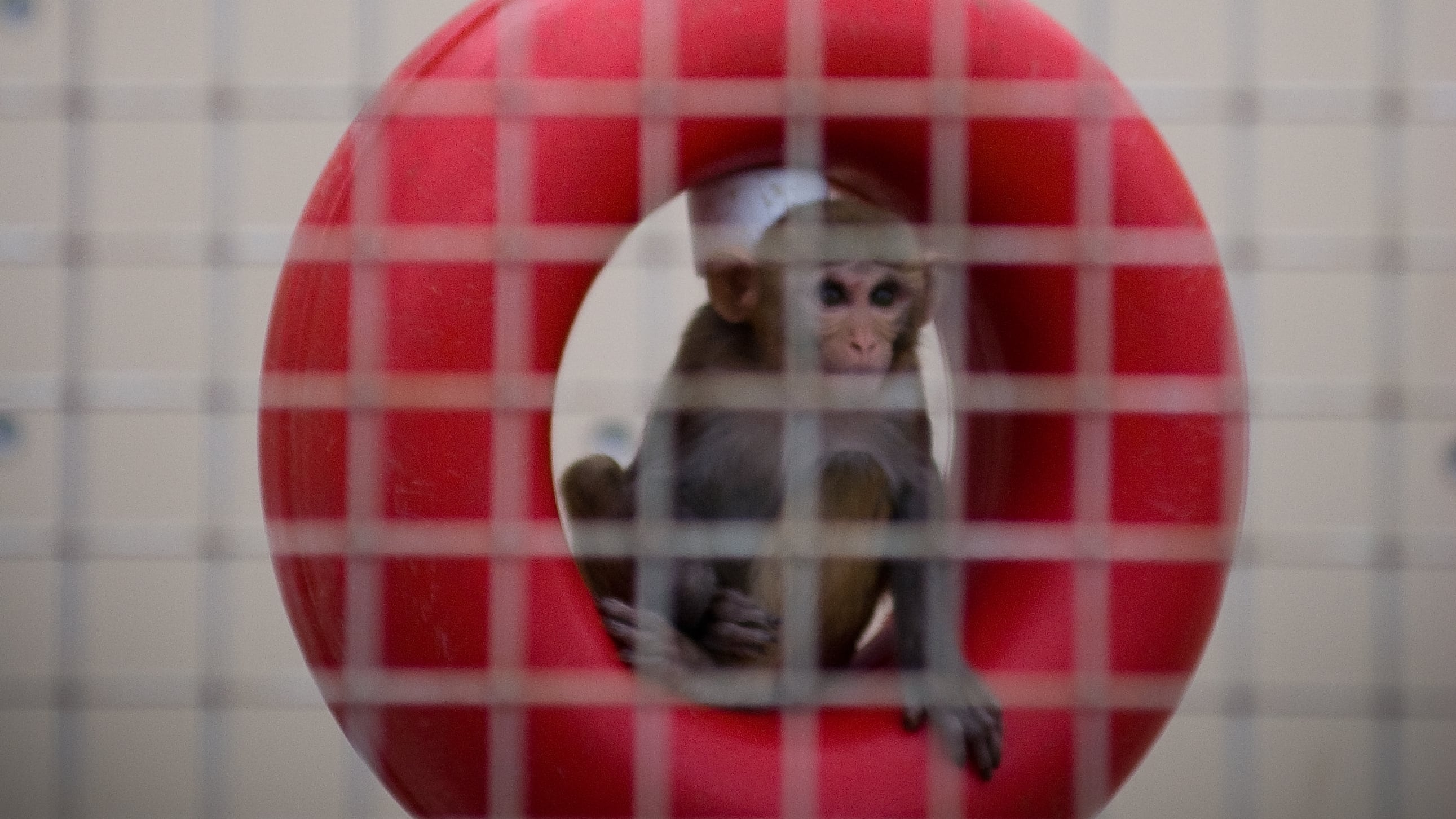Three Democratic members of the state House of Representatives introduced a bill that would phase out research on monkeys at the Oregon National Primate Research Center, the 200-acre compound in Hillsboro that’s run by Oregon Health & Science University.
Reps. David Gomberg (D-Otis), Farrah Chaichi (D-Beaverton) and Mark Gamba (D-Milwaukie) introduced House Bill 3978 on Tuesday. It’s similar to an earlier bill in the state Senate that banned research on dogs and cats. More than 100 people signed up to testify on that bill, seeking to ban medical research on nonhuman primates as well.
The bill would prohibit research on monkeys at the primate center starting May 1, 2029. Any studies being done with grants awarded before the bill passes would be allowed to wrap up. (The primate center gets the bulk of its funding from the National Institutes of Health.)
“We want them to conclude the current research but not start any more,” Gomberg said in an interview.
The bill marks the latest attempt by animal rights groups and medical ethicists to close the primate center, which houses more than 5,000 macaques and other monkeys. The latest push began earlier this year when the Physicians Committee for Responsible Medicine, based in Washington, D.C., ran ads on radio and television showing monkeys pacing in cages.
Soon after the campaign began, Gov. Tina Kotek’s press office told WW that the governor would like to see primate research concluded and the center closed in a “humane and responsible manner.”
The Oregon center is one of seven similar facilities around the country that do research on primates and breed the animals for other laboratories. Oregon’s was the first in the nation, established in 1962. The New England Primate Research Center, run by Harvard University’s medical school, shut down in May 2015, sending its 2,000 monkeys to other labs.
OHSU says it plans to fight efforts to close the primate center.
“OHSU takes very seriously its responsibility to safely and effectively manage the Oregon National Primate Research Center,” an OHSU spokesman said in an email. “We stand with our dedicated workforce and the scientific community in strongly opposing misguided and misinformed efforts to close the center, which would prevent groundbreaking discoveries to advance human health.”
Perhaps a bigger threat to the primate center than state legislation is a cutback in federal research on primates. The Trump administration has directed both the Food and Drug Administration and the NIH to cut back on animal testing. It also aims to slash the NIH’s overall budget roughly in half to $27 billion. The primate center gets about $56 million from the NIH every year, comprising 89% of its $63 million annual budget.
The Physicians Committee for Responsible Medicine says the cuts in federal funding will make the primate center a stranded asset with thousands of unfunded monkeys to feed.
“The Oregon National Primate Research Center has become an expensive liability,” the group said in a statement. “Its NIH funding is threatened by budget cuts and NIH’s change in research direction—away from animal experiments and toward newer methods that do not involve monkeys. OHSU has the opportunity to solve the problem, as Harvard did, by closing its primate research center and reinvesting in workers’ futures.”
The primate center employs about 400 workers, including 170 who are members of the American Federation of State, County and Municipal Employees. That makes supporting the bill awkward for legislators who rely on union contributions for reelection. AFSCME executive director Joe Baessler testified earlier this month in favor of keeping the center open.
HB 3978 includes language aimed at reemploying the center’s workers. It calls for identifying “employee positions that will be impacted by eliminating the breeding of, and research on, nonhuman primates at the center and describe a plan to transition the persons in the employee positions to ensure minimal disruption for the center workforce.”
The bill also calls for the creation of a task force that must include a representative from organized labor. It also requires someone who works in “animal-related community outreach or support services.”

